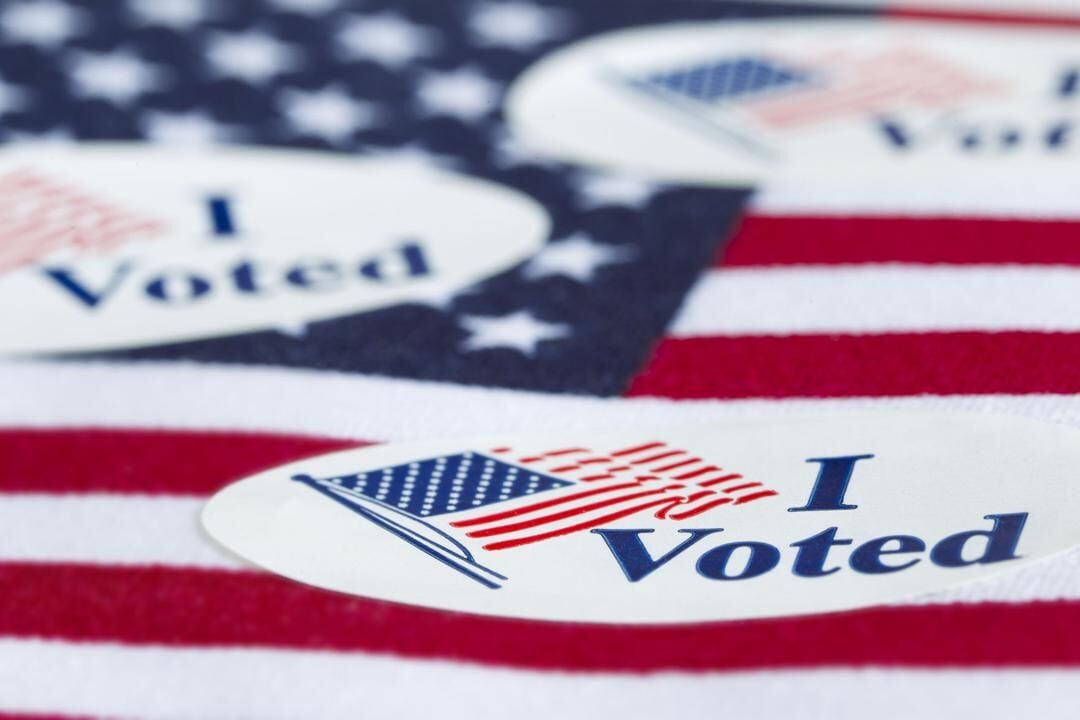Here’s List of measures already placed on the ballot by the state Legislature. The list does not include three pending citizen initiatives which do not have to be filed until Wednesday, July 3.
These measures face legal challenges that could keep them off the Nov. 5 ballot.
Arizona voters in November will see from eight to 11 measures on their ballots put there by Republican lawmakers in the past two sessions.
The total will depend on the outcome of legal challenges filed against three of the ballot referrals.
All were passed with only support from majority Republicans. Democrats call them ways to gin up voter sentiment and get around opposition from minority lawmakers and Democratic Gov. Katie Hobbs. Republicans backing the measures say they are common-sense proposals. Some change the constitution and require voter approval.
These measures were placed on the November 2024 ballot by the state Legislature in 2023:
HCR2039/Proposition 135 — Governorís emergency powers:
Amends the constitution to require the termination of any emergency powers granted to the Governor during a state of emergency 30 days after the proclamation unless extended by the Legislature, with some exceptions. Requires the governor to call a special legislative session on the emergency if 1/3 of lawmakers sign a petition.
HCR2033/Proposition 133 — Ranked Choice Voting ban:
Amends constitution to require state and local governments to only use the traditional primary election process. That allows political party voters to choose one person (or more in cases where more seats are being chosen, such as in the House or Corporation Commission) to be placed on the general election ballot. If passed, it would be a de facto ban on ranked-choice voting.
SCR1006/Proposition 311 — Line of duty deaths:
Amends constitution to require Arizona to pay $250,000 to the surviving spouse or dependent of a first responder killed in the line of duty through 2033 and establishes a $20 penalty fee on every criminal conviction to pay for the new benefit. A first responder is any peace officer, firefighter, fire marshal or emergency medical technician or paramedic. Broadens criminal law to allow more serious assault charges to be brought against anyone assaulting a first responder; previous law only covered law enforcement officers.
SCR1015/Proposition 134 — Qualifying citizen initiatives:
Changes the state constitution to require proponents of citizen initiatives or referrals to collect signatures from all 30 legislative districts. Currently the law requires signatures from 10 percent of voters to propose new laws and 15% for all constitutional amendments with no geographical requirements. Referring a law signed by the governor for repeal or confirmation takes 5%.
These measures were passed the Legislature this year and placed on the November ballot:
HCR 2023/Proposition312 — Homeless as a public nuisance:
Requires local governments to refund property taxes if a property owner can show they’ve had expenses because the government did not enforce laws or had a practice or policy of not mitigating problems associated with the homeless population.
SCR 1012 — Regulation costs:
Requires the Legislature to approve or reject any regulation adopted by a state agency and approved by the governorís rulemaking review agency that may lead to costs to businesses of more than $500,000 over five years.
SCR1021/Proposition 313 — Life in prison for child sex trafficking:
Increases penalty for a first offense of crimes defined as child sex trafficking from a presumptive 20 years in prison to a mandatory life sentence with no chance of parole.
SCR1041 — Initiative challenges:
Changes constitution to allow anyone to challenge the constitutionality of a proposed initiative in court if they bring the challenge at least 100 days before the election. If a court determines it violates the state or federal constitution, it will not be placed on the ballot.
SCR1044 — Eliminates judicial retention elections:
Changes constitution to eliminate the regular retention elections for trial, appellate and supreme court judges. Replaces it with elections that are held only if the judge commits certain crimes, files for bankruptcy or has a foreclosure or has performance issues. Chief justice of the Supreme Court decides if judges must have an election. Would be retroactive, meaning any judge not retained by voters in November would still keep their seat. Small counties would retain their current system of election of judges. Elected judges in small counties not.
SCR1040 — Tipped wages:
Constitutionally changes Arizona minimum wage law to allow restaurants and other businesses that have employees who earn tips to pay up to 25% less than the minimum wage if the employer can prove that those workers actually earn at least $2 per hour more than the minimum wage.
HCR2060 — Border immigration enforcement:
Allows law enforcement officers to arrest and jail people who crossed the border from Mexico into the U.S. outside of a port of entry on a new state “illegal entry” charge. Allows judges to order those convicted of illegal entry deported after serving a sentence and requires state prisons to hold them if local jails are full. Those charged can agree to deportation before a conviction and charges will be dropped. Creates a new low-level felony for someone in the country without legal permission who applies for or receives benefits such as public housing. Creates a new high-level felony law for those who sell fentanyl that leads to an overdose death, with a presumptive sentence of 10 years in prison.





